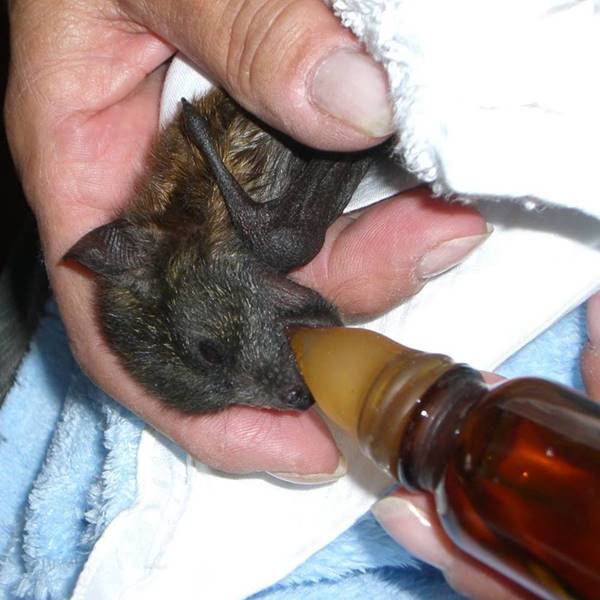Media Releases
Contact media@wires.org.au for enquiries or call 0416 272 153.
Read the latest updates on our emergency and bushfire projects here.
WIRES warns thousands of flying foxes could die during current heatwave

Flying-fox pup rescued from Northern NSW colony in care with WIRES (photo credit WIRES Jenny Beatson)
WIRES is warning that thousands of flying-foxes are expected to
perish over the next week as temperatures across Australia continue to
soar.
WIRES NSW flying-fox coordinator Storm Stanford said colonies across the
Eastern states have been under stress for months due to ongoing food
shortage and drought. Mass deaths have already occurred in Northern and
Southern NSW.
With drought-stressed eucalypts producing little or no nectar or not
flowering at all, flying-foxes have vacated many established colonies
and flown south in search of food or to escape the bushfires.
“And this is at a time when we most need this next generation of our natural pollinators to help regenerate the 2.7 million hectares of bushland in NSW already burnt out.”
WIRES is partnering with other rescue organisations including Sydney
Metropolitan Wildlife Service (SMWS) and Wildlife Rescue South Coast
(WRSC). They are liaising with one another to manage the overwhelming
number of bats currently coming into care.
SMWS Bat coordinator Sarah Curran said they are closely monitoring the
most at risk colonies in and around the Sydney metropolitan area.
“Conditions for the bats are already so bad, we expect they will suffer
more than usual in these extreme temperatures. We are carefully
observing these colonies from a safe distance and will be ready to
rescue as many as we can within our limited resources.”
WRSC spokesperson Janine Davies and her team have collected more than
1700 dead or dying bats in the NSW south coast area in the past month
alone.
“Most of the rescues are infants that are literally falling from the sky
because they're simply too weak to cling onto their mothers due to lack
of nutrition. In all my years as a rescuer I have never seen such large
numbers of starving baby flying-foxes."
WIRES advises that the public should avoid any direct contact with
flying-foxes, alive or dead, as there is the risk of being scratched or
bitten which could lead to a virus infection - for more information
please visit wires.org.au If you find a bat in distress please call
WIRES on 1300 094737 or your nearest wildlife rescue organisation.
For more information email media@wires.org.au
#nswheatwaves #heatstress #flying-foxes
Search
Newsletter
Stay in touch and get our regular rescue stories, WIRES updates and a free copy of our 15 Ways to Help Wildlife ebook
Recent Posts
- WIRES Northern Rivers & Clarence Valley welcome new Emergency Responder and Wildlife Ambulance
- WIRES Supports Tasmanian Wildlife and Wildlife Rehabilitators
- WIRES Research Grants Program 2023
- WIRES awards 75 Grants to support wildlife sector
- New Voice to fight for koala protection: Sydney Basin Koala Network
- Bravecto Spot-On for Dogs is combatting wombat mange
- Join the fight to save wombats from mange
- Radicool Australia and WIRES release new range of kids UV protection hats and swimsuits
- Spring has sprung: Native Animal ornaments are back at Woolworths
- Highlighting native animal research in Australia
